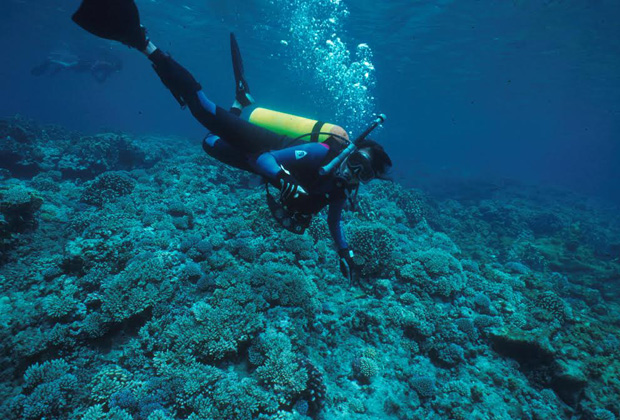Although coral reefs are in rapid decline in most regions, new natural and social science research sponsored by NCCOS is helping to support successful coral reef management strategies and interventions.

Recent and emerging molecular tools such as genomics (complete genetic mapping/DNA sequencing), proteomics (protein analysis), and transcriptomics (complete messenger RNA analysis) allow researchers to address coral reef issues in a more proactive and quantifiable manner. These new techniques can be applied to identify specific cause-and-effect relationships between stressors and organism responses, genetic diversity, connectivity between populations giving insight into the degree of resilience of reef communities.
Like a human blood test, molecular measurements of protein and gene expression (responses) to the environment and how they vary with management efforts, can be used to guide financial resources to achieve desired outcomes. Coupled with economic and social analysis of coral ecosystem services, especially previously unrecognized non-monetary services, these methods strengthen local constituencies and foster greater support for wise and equitable management of reef ecosystems.
A new scientific paper, supported in part by the NCCOS coral reef science to management project in the Pacific, outlines scientific ‘frontiers’ for managers to restore coral reefs. These scientific frontiers, combined with proven local governance principles, can lead to successful coral reef restoration and management. The paper is published in the online journal Frontiers in Marine Science. Learn more from the University of Hawaii News Release.
For more information, contact Felix.Martinez@noaa.gov.
